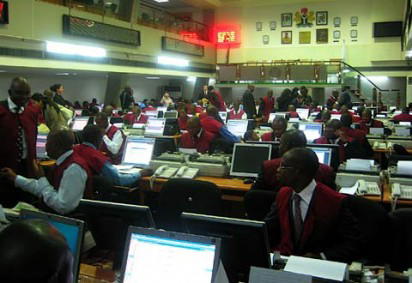Investors lose N847bn as profit-taking rattles stock market
 Investors lost N847 billion in the stock market last week due to the negative impact of profit-taking and selloffs on the Nigerian Exchange Limited.
Investors lost N847 billion in the stock market last week due to the negative impact of profit-taking and selloffs on the Nigerian Exchange Limited.
Consequently, the NGX market capitalisation, which represents the total value of investment on the Exchange, dropped to N55.131 trillion from N55.978 trillion the previous week.
Similarly, the NGX All Share Index, ASI, another major market indicator declined by 1.5% to close on Friday at 97,100.31 points from 98,592.12 points the previous week.
The profit-taking across major sectors of the market also weighed on the NGX, creating opportunities for market players to pick value stocks at discounted prices.
Meanwhile, more companies notified the Exchange of their Annual General Meetings. The latest came from FBN Holdings, while Airtel Africa continues to update the Exchange of its ongoing share buyback programme.
In the midst of all these, analysts stated that it is safe for investors to target companies with consistent track records of dividend payment, strong fundamentals and growth prospects that will support further growth in earnings which price feeds in any market cycle.
Meanwhile, market analysis shows Month-to-Date and Year-to-Date returns moderating to -0.7% and +29.9%, respectively. Similarly, activity levels wavered as the trading volume and value declined by 24.1% Week on Week, W/W and 1.4% W/W, respectively. On the other hand, performance across the sectors was mixed following gains in the Oil & Gas Index that garnered 5.3%, Insurance Index 0.8% and Consumer Goods Index 0.4%, while the Industrial Goods Index shed 5.2% and Banking Index 2.3%.
On outlook for the week, analysts at Cordros Research stated: “Looking ahead, we still expect bearish sentiments to remain the key theme as investors remain cautious and continue to exhibit weak appetite for equities. Furthermore, we believe the developments in the macroeconomic landscape and corporate actions of the upcoming earnings season will influence investors’ sentiments over the near-term.”







